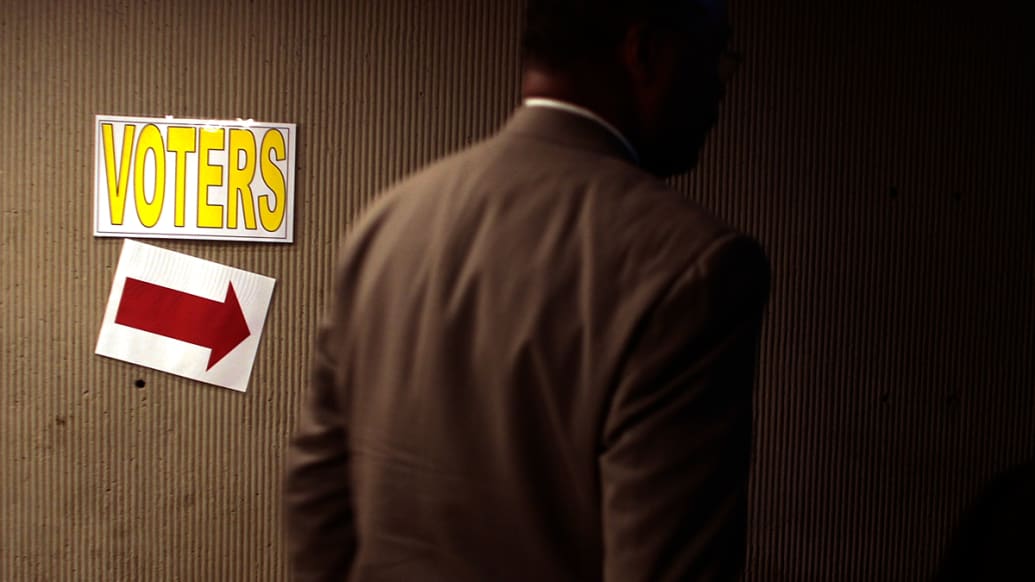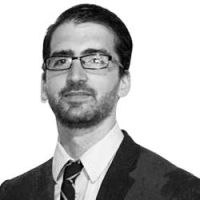Super Tuesday will not live up to its name this year. In past presidential primaries, the first Tuesday in March was the decisive day when so many big states held their nominating contests that it almost served as a nationwide primary. But when 10 states hold their presidential preference polls a week from today, it’s more likely to muddle the picture further than to be decisive.

Of the 2,286 delegates who will attend the Republican National Convention in Tampa, 419, or less than one in five, will be selected next week, and those are allocated by convoluted rules that bear only a limited relation to the respective states’ political influence or population (though they do tend to reward solidly Republican areas.) Thus, Oklahoma has more delegates than Massachusetts, even though the Bay State not only has nearly twice the population than Oklahoma but more Republican voters as well.
The states at stake next week:OhioOhio has long been a battleground in general elections, and it will also be fiercely contested by Republicans next week. Newt Gingrich has been campaigning in the state for the better part of a month, even spending caucus night in Minnesota and Colorado on Feb. 7 in the Buckeye State. Although Romney has the support of much of the state’s Republican establishment, he suffered an embarrassing defection there last week when Mike DeWine, the GOP Attorney General and former U.S. senator, announced that he was shifting his support to Rick Santorum. However, Romney should still be well positioned in Ohio, which has long been a cradle of the establishment wing of the Republican Party. Although Santorum is currently given a narrow lead in the statewide polls, Ohio apportions delegates by congressional district, which should allow Romney to take advantage of his organizational strength. His money lead will also benefit him here, as Ohio is splintered into a number of different major media markets, making it far more expensive and complicated to advertise in than in Michigan, where a majority of voters can be reached on Detroit television. Georgia, Tennessee, and Oklahoma These three states will be Gingrich’s last stand. Gingrich has long polled best in the South and the much-battered former speaker will be hoping to turn his former home state of Georgia, as well as Tennessee and Oklahoma into redoubts against the Santorum surge. Although he has been buoyed by another influx of money to his super PAC, Winning Our Future, by Las Vegas billionaire Sheldon Adelson, he faces daunting odds for success. He needs to weave the narrow gap left between Santorum and Romney, hoping to supplant Santorum as the favorite of Southern conservatives without boosting Romney’s fortunes in the process. Gingrich still seems likely to pull a win in Georgia, which he needs in order to justify even staying in the race. But without any scheduled debates in the near future, he needs to find success in the contests held in these other two culturally Southern states.
VirginiaThe one state where Romney does not have to worry about being upset by Santorum is Virginia. That’s because Santorum, along with Gingrich, didn’t meet the commonwealth’s strict standards for making the ballot. The result is that Virginia will be a two-man race between Romney and Ron Paul. Although Virginia is an open primary, which allows both Paul supporters who aren’t registered Republicans and Democratic mischief makers to participate, it is unlikely Paul will end up receiving a single delegate from the state. The result is that even if Romney loses Michigan and has yet another gaffe-prone week, he’s guaranteed one landslide win on Super Tuesday.
IdahoThe rules for Idaho’s county caucuses next week are downright bizarre. Republicans gather in every county and go through several rounds of voting by secret ballot. The lowest finishers are removed in each successive round until one candidate gets more than 50 percent of the vote. That candidate then gets all of that county’s delegates to the state Republican convention. This means that organizing in small rural counties with low turnouts can have outsize rewards— and Idaho is a state with a lot of small rural counties (41 of its 44 counties have fewer than 100,000 people). The process also rewards the most committed voters, who are willing to show up to centralized caucuses and then cast several rounds of ballots. These factors, combined with fertile political soil for black-helicopter-type mutterings, make the state a prime target for Paul, who’s aiming to reap delegates here, though a first-place finish may be out of reach.
Massachusetts and VermontBoth New England contests should be easy wins for Romney. For all the Michigan-as-his-home-state talk this week, Massachusetts is Romney’s state of residence, where he served as governor and where his campaign is headquartered. While Santorum may do better than expected in appealing to socially conservative Catholics in the state, Romney should still dominate among the embattled few that make up Republican primary voters in the Bay State.
Vermont is one of the last bastions of liberal Republicanism in the country. In fact, since the rise of the modern Democratic Party under Andrew Jackson, it has only elected one Democrat to the U.S. Senate: Patrick Leahy. (Bernie Sanders is an Independent who caucuses with the Democrats). The state awards all of its delegates to a candidate who wins more than 50 percent of the vote, and it’s likely that will be the case for Romney.
Alaska and North DakotaFinally, North Dakota and Alaska hold more-conventional caucuses and conventions. While both will be interesting indicators of the candidates’ respective strength in less populous Western states, Alaska’s vote also means that Sarah Palin will once again make political news. Although she hinted at her support for Gingrich (and her husband openly endorsed him) when the candidate was surging in the polls last month, she now is just taking pleasure in trying to extend the GOP nominating process. Palin remains a wild card, and while it’s impossible to predict what she might do or say, her actions will certainly capture the attention of both the national media and the Alaskan electorate.

